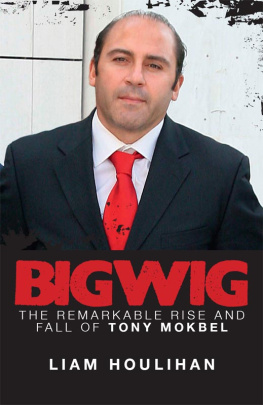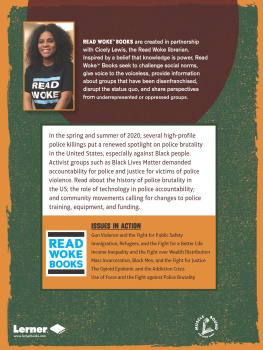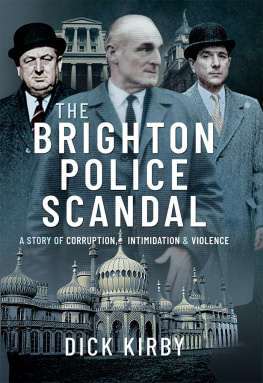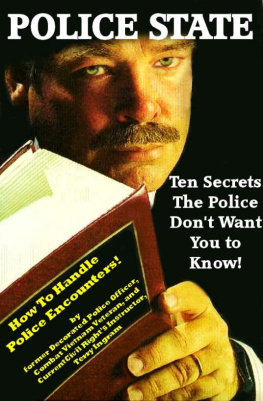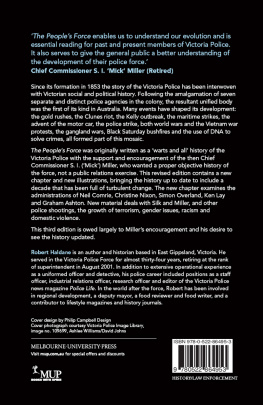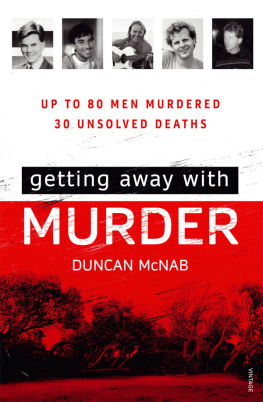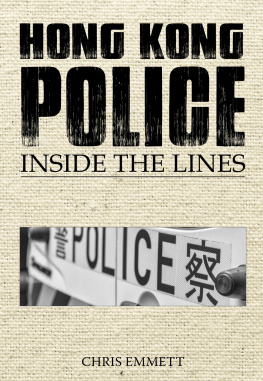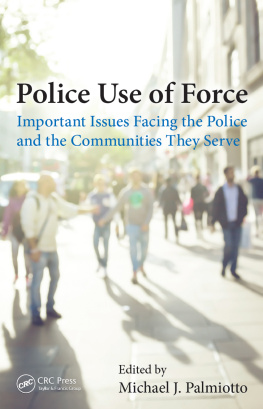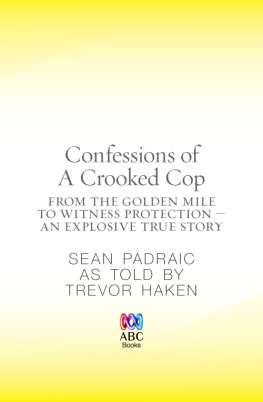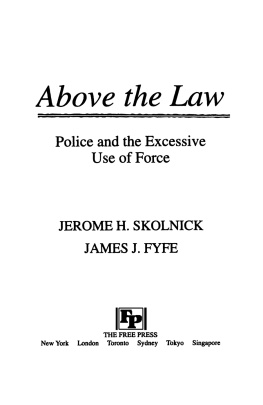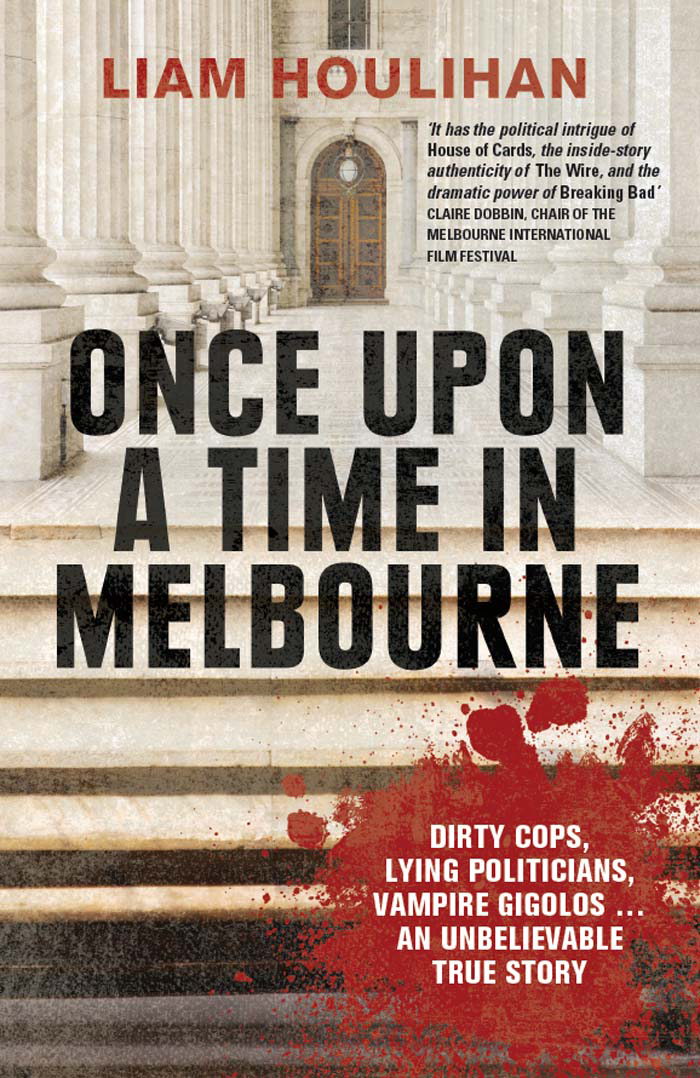Liam Houlihan is an award-winning journalist and former lawyer. He has reported from New York, Washington DC, from Sri Lanka after the tsunami, and Singapore for underworld figure Mick Gattos pursuit of missing Opes Prime money. He was the Sunday Herald Suns crime reporter for five years from 2007 until 2011 during the rise and fall of police chiefs Christine Nixon and Simon Overland. He is currently a News Editor at the Herald Sun. This is his fourth book.
Also by this author
Badlands
Return to the Badlands
BIGWIG: The Remarkable Rise And Fall Of Tony Mokbel
ONCE UPON A TIME IN MELBOURNE

VICTORY BOOKS
An imprint of Melbourne University Publishing Limited
1115 Argyle Place South, Carlton, Victoria 3053, Australia
mup-info@unimelb.edu.au
www.mup.com.au
First published 2014
This edition published in 2015
Text Liam Houlihan 2014
Design and typography Melbourne University Publishing Ltd 2014
This book is copyright. Apart from any use permitted under the Copyright Act1968 and subsequent amendments, no part may be reproduced, stored in a retrieval system or transmitted by any means or process whatsoever without the prior written permission of the publisher.
Every attempt has been made to locate the copyright holders for material quoted in this book. Any person or organisation that may have been overlooked or misattributed may contact the publisher.
Cover design by Nada Backovic Designs
Typeset by J&M Typesetting
Printed in Australia by McPhersons Printing Group
National Library of Australia Cataloguing-in-Publication entry
Houlihan, Liam, author.
Once upon a time in Melbourne / Liam Houlihan.
9780522862331 (paperback)
9780522867138 (ebook)
CrimeVictoriaMelbourne.
Organized crimeVictoriaMelbourne.
CriminalsVictoriaMelbourne.
PoliceVictoriaMelbourne.
Melbourne (Vic.) History2001
364.99451

For Ned, Marie, Nikita and Segolene.
May your Melbourne be better.
CONTENTS
AUTHORS NOTE
Given the conflicts that are described in these pages are still now bitterly contested even if it were desirable it would be impossible to present a version of events that would be pleasing to all. The narrative that follows is a patchwork quilt of the views of the various people and groups involved, and it jumps between perspectives in order to shed further light on the beliefs and actions of the players. Despite the jumping perspectives, the story is independent of the political dogma of any of the major combatants to the point that none of those featured here are likely to be thrilled with their ultimate portrayal.
Some of the partisans involved have written their own versions of this history. All are free to. This is my independent take on years of drama that started with a crime and ended a decade later in political disaster.
Where it is unclear, and where possible, the descriptions of events are sourced to those who provided themparticularly in the endnotesso the reader can make their own judgment as to their reliability and any possible agendas at play.
The italicised quotes are almost all verbatim renderings of what the players actually said according either to the people themselves, or as relayed by others who were there.
When there are thoughts in italics they are also taken from actual accounts. Some quotes and exchanges have been trimmed for brevity but none in any substantial way, none as to change their meaning, and none have been plucked from thin air.
Just because the police investigated one person or another for a crimeand this book in part tells the story of those investigations and relays their findingswhere they did not end with a criminal conviction by a court it should not be assumed that person is guilty of the crime. Acknowledgments follow.
Things are crook in Tallarook
But much the same in Castlemaine
PART I
THE HALLS
T AKE A FLOAT through your city. Even if youre not from here, shes still yours. Yours to come to knowto earnone stride, kiss or skun knee at a time. So get to know her. Take a float through your city. Float down her tram tracks, her brown rivers, her concrete warrens worming underground. Start out from the citys ventricles; slide down her many tentacles.
Ascend to the lofty heights of the citys glass and steel towers, rooftop car parks and bars. Look down on the big river, out into the bay, out into Melbournes past. See the Wurundjeri people congregated in paddocks, snacking on tortoise eggs, kicking the footy and telling stories of how an old man carrying a boy carved the big brown river into the earth. Now see them hunt kangaroos in the paddocks, then stop to check their soggy feet as rising damp, over thousands of years, turns the dry fields into sea and bay.
Feel the same winds that blew then blow now onto your face. The cool, southern winds, having licked the sea on the way in, barrel up the guts of the central city, they oxygenate the crosshatch of streets like a giant lung. When the winds become overpowering, the locals shelter in the maze of eastwest laneways and arcades, where cafes and bars have bloomed because its so often too hot, too cold, too wet, too windy. The icy gales bounce off skyscraper barricades until they find the next open boulevard going the same way, and then push on, untrammelled, to steal newspapers, trouble skirts, upturn umbrellas, and push the No. 72, rattling and dinging, up the rise all the way to the university.
They had once tried to fill these lovely banks with convictslike they did to Sydney, to Tasmaniamake her an outpost of human misery, a depot for crime, disease and the lash. And it had nearly happened. The lieutenant governor had sailed from England with two ships and 300 convicts, all bound for Melbourne, but he stopped short, pulled into Sorrento and promptly bottled it, refusing to sail further without extra backup, for fear of the blackfellas hiding in the bushes. Some of his prisoners escaped but even they didnt fancy their new home and ran back, too late, to their departing prison ship. In the absence of a convict settlement, it was left to the odd felicitous farmer and explorer to discover the land on the bay and set up a life on the green banks of the river.
The English authorities had made plans to litter her roads with skeletons in chains, walking and dying in formation, to leave her with that ongoing meanness, that scar. But the Empire failed. Instead a city grew; one that was populated but not rambunctious, genteel but not a backwater. A metropolis that was bustling and rough but not always shoving and yelling, like Sydney, with her white noise of public rancour.
THE KILLING
T HE SAME ambivalent sun woke the killers and their quarry. The same birdsong and traffic noise filled all three sets of ears. It was a winter Wednesday morning like any other in Melbournebut not for these three men whose fates would soon irreversibly collide. All three had cause to carry around the kind of simmering anxiety that attaches itself to dirty work not yet finished and not yet put out of mind. Shane Chartres-Abbott had his court date to keep. The other two had their contract to conclude: the killing of Mr Chartres-Abbott.


